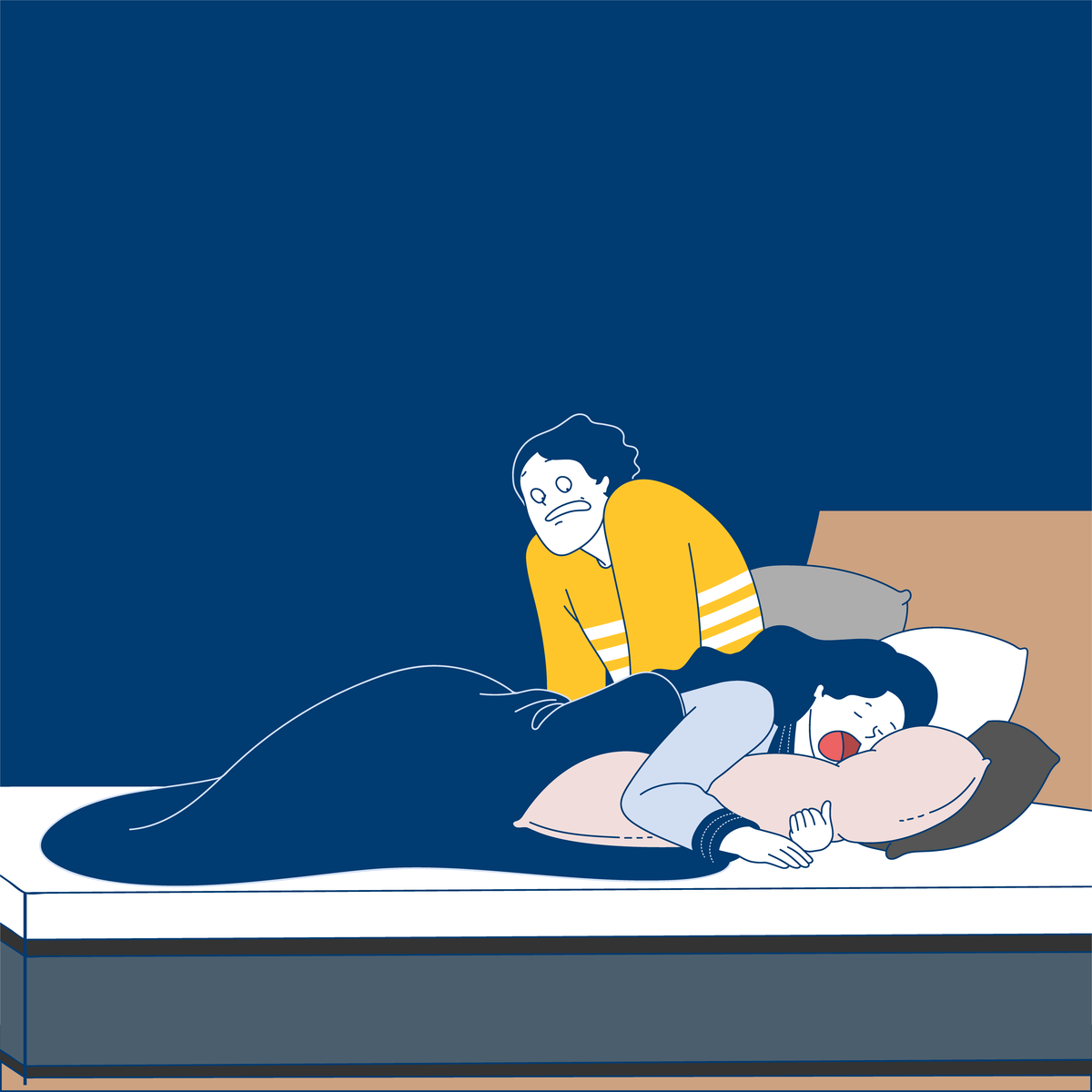World Sleep Day is coming up on the 19th March and this year’s theme is Regular Sleep, Healthy Future. Here at Ecosa, we’re embracing the day so much we’re making it into a full month! Expect to see a range of sleep health topics covered by our qualified sleep experts, and this week we’ve got Dr Kevin Cheng again to tell us about sleep disorders.
Getting good rest is important and addressing an underlying sleep disorder can make a significant impact on your life.
Sleep Apnoea
Sleep apnoea, where your airway is partially blocked when sleeping, affects 1 in 4 Australian men over the age of 30, and is associated with weight gain, fatigue, poor concentration, irritability and reduced sex drive.
Sleep apnoea results in constant interruptions to your sleep, and unfortunately over the longer term, leads to a higher risk of heart attacks, stroke and high blood pressure. People affected are two and half times more likely to have a car accident due to slower reaction time and fatigue.
It may be caused or precipitated by obesity, alcohol, smoking, large tonsils or nasal congestion, and sedative medications such as sleeping tablets. Some medical conditions are associated with a higher risk of sleep apnoea, such as heart disease, stroke, hypertension, asthma, low thyroid, Parkinson’s disease and Polycystic Ovarian syndrome (PCOS).
Tell-tale signs include snoring, frequent turning or waking during the night, gasping for air, dry mouth, morning headache and daytime sleepiness. Diagnosis is through a sleep study, which can be performed in hospital or at home.
Treatment of sleep apnoea can involve exercise, weight loss, alcohol moderation, smoking cessation, sleeping on your side, mouth guards, breathing equipment (Continuous Positive Airway Pressure or CPAP machines) and surgical correction of your airway.
Other sleep conditions to be aware of include insomnia, restless legs syndrome, sleepwalking and narcolepsy. Insomnia is often behavioural and environmental – key to management is ensuring adequate outdoor activity during the day, avoiding excessive napping, and a relaxing routine in a peaceful, cool room at night. Avoiding caffeine, alcohol, blue light, stress and pain can help.

Restless Leg Syndrome
Restless legs syndrome is a movement disorder that causes unpleasant sensations in the lower limbs at rest and typically at night time. Legs or feet can experience crawling, creeping, itching, throbbing or electric tingles. The cause is often unknown and treatment centres around exercise, stretching, baths and ice packs, and medications.
Sleepwalking
Sleepwalking may be due to stress, fever, sleep disruptions or sleep deprivation, and is more common in kids. Reducing the risk of injuries and getting adequate rest is the mainstay of treatment, along with hypnosis, counselling and medications.
Narcolepsy
Narcolepsy is a chronic sleep disorder characterised by day time sleepiness and sudden attacks of sleep. It can be associated with loss of muscle tone, paralysis and hallucinations, and can be significantly disabling in daily life. Cause is unknown but is thought to be genetic, and treatment focuses on medications to stimulate the nervous system, or drugs to suppress REM sleep.
If you or a family member suffers fatigue, daytime sleepiness, snoring or frequent sleep disruption, talk to your GP about screening for sleep disorders.
About the Author:
Dr Kevin Cheng is an Australian-trained GP specialising in chronic disease management and integrated care. He has worked as a doctor in Australia, Hong Kong, London and Africa in clinical and non-clinical roles.
Dr Cheng also has a business background, having advised international companies at McKinsey and Boston Consulting Group. He is the founder of Osana, a general practice corporate based in Sydney, NSW.



